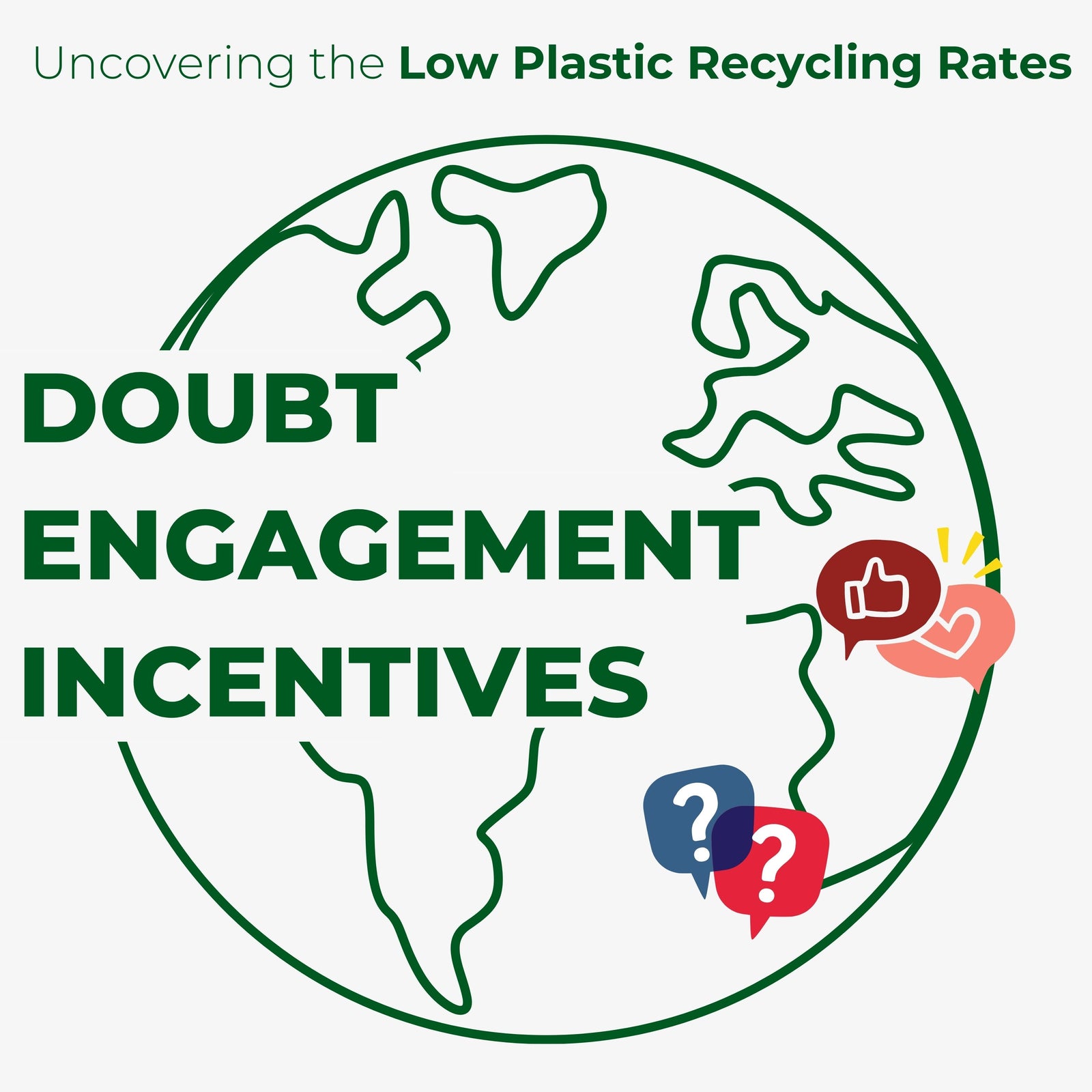Uncovering the Low Plastic Recycling Rates: A Deep Dive by Danny Schrager, CEO at Geared for GREEN (Part 1 of 2)

Jan 8, 2024
At Geared for GREEN, we're not just about recycling; we're about reinventing it for better sustainability and value. As a family of companies, we have proudly helped our clients divert over 1,000,000,000 pounds of plastic and other waste materials from landfills.
Our clients, ranging from event organizers to corporate giants, often questioned their previously low recycling rates, particularly for challenging commodities like plastic waste. Hovering around a meager 9%, these rates posed a significant concern. They sought our expertise in implementing programs to enhance these rates. Drawing from our experience in fostering circular economies and sustainable supply chains, we've identified three main causes for poor plastic recycling rates: DOUBT, ENGAGEMENT, and INCENTIVE. Let's delve into these factors.
Cause 1: Doubt Many consumers participate in plastic recycling, but a significant number don't due to doubt about whether their efforts genuinely lead to recycling. News reports of plastics ending up in landfills and images of branded waste polluting natural habitats fuel this skepticism. This lack of transparency, coupled with 'Greenwashing' practices by some brands, exacerbates consumer doubt. Additionally, fluctuations in the recycling market influence the perceived value of recyclables, further dampening enthusiasm for recycling. Such doubt not only creates risk for corporations aiming to enhance their recycling efforts but also leads to consumer apathy.
Cause 2: Education & Engagement Even the most dedicated recyclers are often left in the dark about the fate of their recycled plastics. This mystery surrounds everything from plastic bottles to mixed plastics. Without transparency and education on how these materials are recycled and repurposed, consumers remain disengaged. The recycling industry has largely failed to evoke the emotional connection essential in motivating consumer behavior. At Geared for GREEN, we strive to bridge this gap by bringing recycling to life and fostering a deeper connection with the process.
Cause 3: Lack of Incentive The third major barrier is the insufficient incentive for recycling. Current incentive mechanisms, like redemption fees, fail to fully acknowledge and reward the efforts of those participating in recycling. At Geared for GREEN, we're exploring more meaningful ways to recognize and encourage these eco-conscious actions, moving beyond the traditional frameworks to offer incentives that truly resonate with and motivate our community.
Together, these factors significantly hamper plastic recycling rates. In my next post, I'll discuss the innovative solutions our team at Geared for GREEN has developed to address these issues, showcasing how we enhance both recycling rates and our clients' overall brand value in environmental and social responsibility."
Stay tuned for my upcoming post where I'll unveil the innovative solutions we at Geared for GREEN are implementing to tackle these challenges head-on. Together, we can redefine recycling for a more sustainable future.



